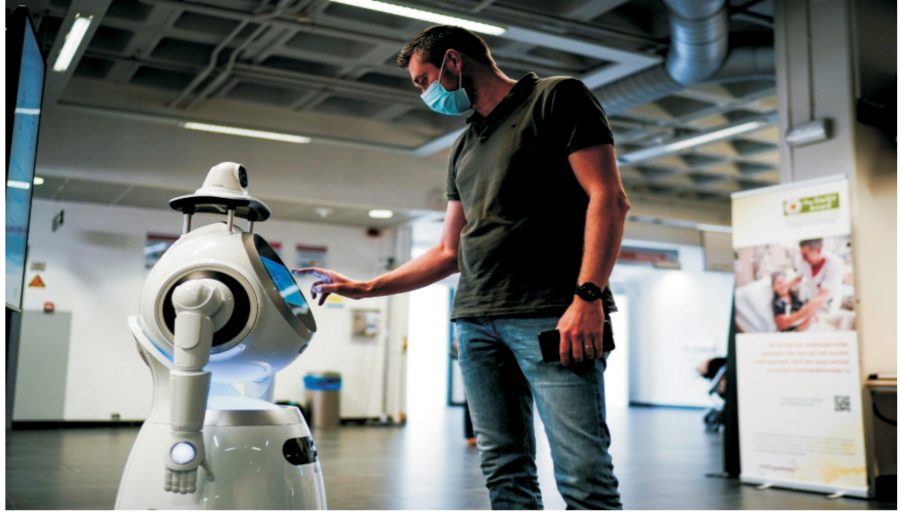When human contact needs to be kept to a minimum, robots can save lives and factories. But when the coronavirus crisis is over, will they amplify job losses?
It may be a mechanised arm pulling beers in a Seville bar, a dog-like dispenser of hand sanitiser in a Bangkok mall, a cooler on wheels that delivers groceries in Washington, or a vaguely humanoid greeter at a Belgian hospital that also checks you are not running a fever.
These are some of the new jobs that robots have taken on as lockdown measures have seen humans confined to their homes.
“The moment there is a threat for humans, you should send a robot,” said Cyril Kabbara, co-founder of the French start-up Sharks Robotics.
Its robot Colossus helped save Paris’ Notre Dame Cathedral when flames engulfed its roof in 2019, and has been adapted to help remove lead that contaminated the site.
“Four or five years ago, when we went presented the Colossus, they laughed at us. The firefighters said: ‘These guys are going to take away our jobs’,” said the entrepreneur.









